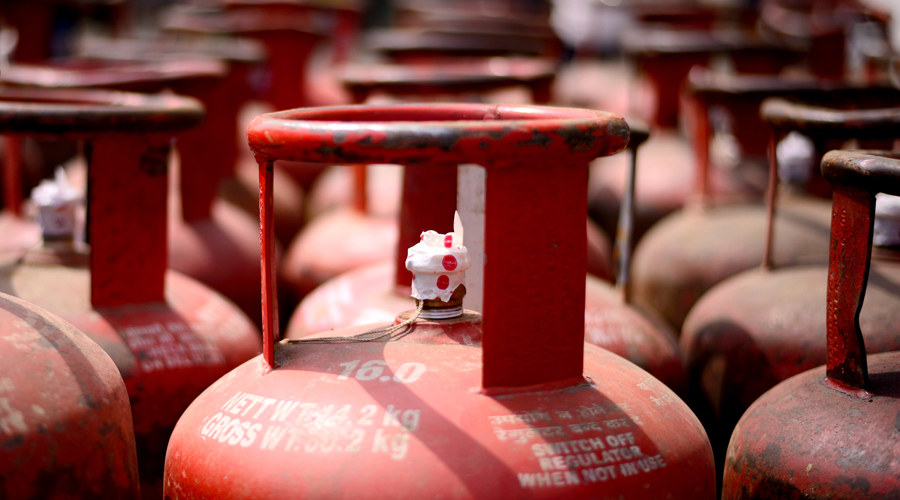Only half of urban slum households surveyed in six states exclusively use liquid petroleum gas for cooking despite 86 per cent of these families having LPG connections, a study has found.
Researchers associated with the survey have cited the poor doorstep delivery of LPG cylinders at slums and the sharp rise in cooking gas prices as some of the reasons why many families turn to alternative cooking fuels.
They have emphasised that these alternative fuels can cause severe indoor air pollution and leave households more vulnerable to Covid infection.
The Cooking Energy Access Survey, 2020, was conducted by the Council on Energy, Environment and Water in Uttar Pradesh, Bihar, Chhattisgarh, Jharkhand, Madhya Pradesh and Rajasthan, which together account for nearly a quarter of India’s urban slum population. The survey covered 656 households across 83 urban slums in 58 districts.
“Only half of the urban slum households in six Indian states use LPG exclusively. This is in spite of 86 per cent of urban slum households in these states having an LPG connection,” the survey says.
Some 16 per cent of the households still use traditional fuels such as firewood, dung cakes, farm residue, charcoal and kerosene as their primary cooking fuel, thus increasing indoor air pollution, the survey says. Over a third stack LPG with these polluting fuels.
“As part of the next phase of the Pradhan Mantri Ujjwala Yojana, the government must target poor households without an LPG connection in urban slums. Policymakers must also nudge oil marketing companies and distributors to improve home delivery of LPG refills in slum areas to increase the exclusive use of LPG,” council CEO Arunabha Ghosh said.
“Also, as the LPG refill prices rise, the government must target vulnerable households — beyond the PMUY beneficiaries — with differential subsidy support for using LPG in a sustained manner.”
A sizeable share of urban slum households cannot afford LPG for all their cooking, especially because of the rising fuel prices and the economic impact of the pandemic, said Shaily Jha, research analyst with the council and lead author of the study. Jha suggested that “access to clean cooking energy” be included within the ambit of the government’s welfare schemes.
According to the study, three-fourths of households that use polluting fuels cook inside the main house, and two-thirds have no chimneys, exposing their women and children to high levels of indoor air pollution.
Long-term exposure to emissions from biomass burning also makes the population more vulnerable to Covid-19 infection, the survey says.
It has highlighted that 37 per cent of LPG-using slum households do not receive the cylinders at their doorstep.
The survey has recommended leveraging platforms like “LPG panchayats” to increase awareness about the way the cooking gas subsidy is calculated for households.
It says male family members dominate the decision-making about refill purchases, and increased awareness about the actual expense on the refills may help raise women’s bargaining power within the household.











